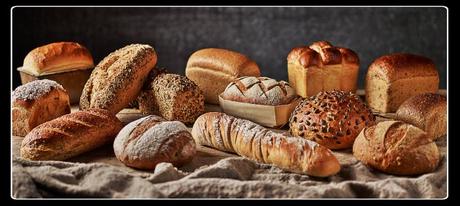
Homemade and artisan breads are hugely increasing in popularity day by day due to their delicious slow fermented loaves. They have given the mass market of commercial bread quite a run for their money. From 2014 to 2015, a sharp decline was noted in the sales of commercially baked bread. People are more interested in having hand made produce on their breakfast plate.
The growing trend towards wholesome and healthy artisan loaves has caused many bakers to avoid using commercial additives in their baked goods. These additives include emulsifiers, preservatives and enzymes which strengthen gluten in flour and also feed the yeast. Most professionals are making use of only the four basic ingredients – water, yeast, flour and salt.
Nowadays, health conscious consumers are concerned about the way their breads are baked, whether plastics are involved in the baking process and if organic flour is used for preparation. Thus, their increasing affinity towards homemade and artisan is undoubtedly connected to concerns related to sustainability as well as health.
Many people would be taken aback to know that commercial yeast is actually a by-product of petrochemicals. This is because the ammonia utilised for feeding yeast is obtained from hydrogen and nitrogen, and that hydrogen comes from the petrochemical industry. As a result, every loaf prepared using commercial yeast releases greenhouse gases and contributes towards adverse climate change.
As per rule, organically produced bread must contain 95 percent certified organic ingredients, but the remaining 5 percent can have non-organic ones. Some bakeries take advantage of this and make use of non-organic yeast as often as possible. Though 5 percent would not seem too much at first, it can be highly consequential when considered in terms of mass production.
In such circumstances, the only option being considered healthy by consumers is artisan bread. Many bakeries have already started replacing their commercial machinery and ingredients with artisan bread line equipment and organic flour, natural sourdough yeast, etc. Such ingredients are derived entirely from natural sources and do not include any harmful elements. Even the carbon used for transporting sourdough yeast and wheat for flour hundreds of kilometres is devoid of any chemical-induced preservation method.
The ultimate demand of people is for something that would not trigger any harmful symptom such as stomachache after consumption. Consumers wish for scrumptious and organic baked goods. At present, artisan bread seems to be doing more than their wishes for a healthy breakfast every morning.

